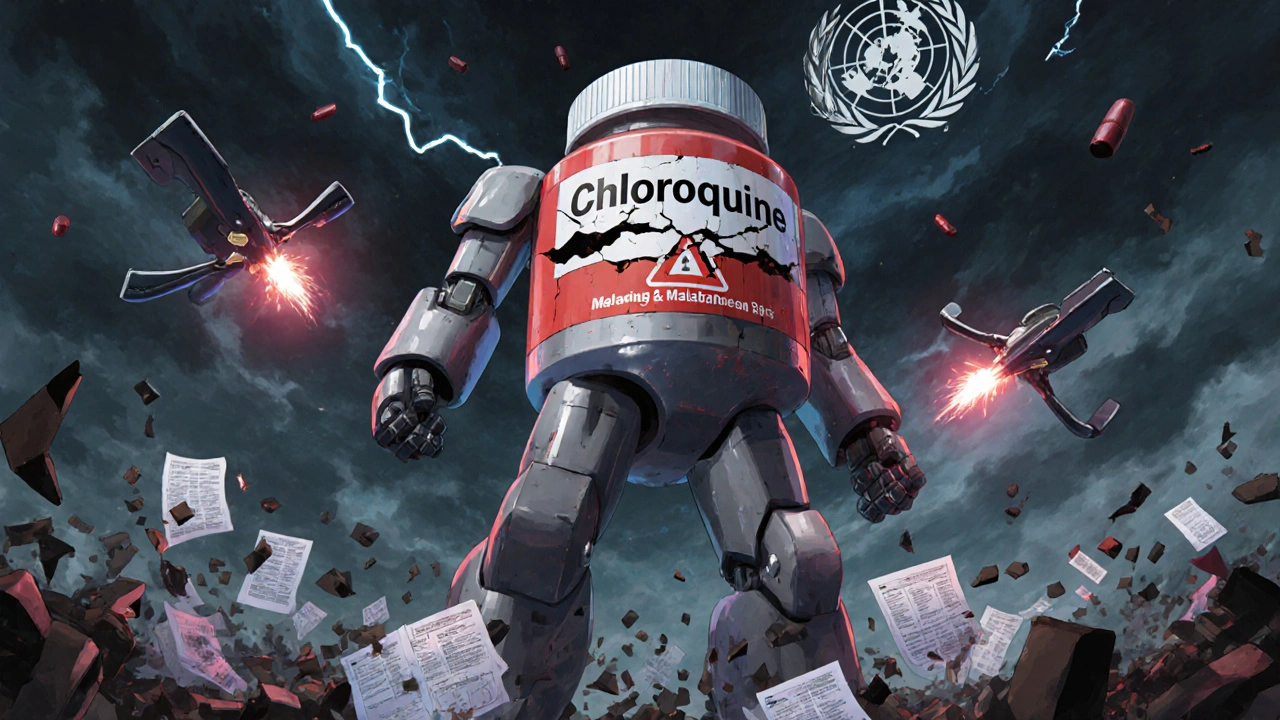Chloroquine: Uses, Risks, and What You Need to Know
When you hear Chloroquine, a synthetic antimalarial drug first developed in the 1930s and used widely during World War II. Also known as CQ, it was once the go-to treatment for malaria and is still prescribed in some regions today. But it’s not just a malaria drug — it’s been tried for lupus, rheumatoid arthritis, and even COVID-19, though most of those uses are now outdated or disproven.
Chloroquine works by interfering with how parasites digest blood in the liver and red blood cells. That’s why it’s effective against certain strains of malaria. But it doesn’t work against all types anymore — many parasites have grown resistant. That’s why hydroxychloroquine, a slightly modified version of chloroquine with fewer side effects. Also known as HCQ, it became more popular for long-term use in autoimmune diseases. Both drugs can cause serious heart problems, especially when mixed with other medications. If you’re on antibiotics, antifungals, or even some antidepressants, chloroquine can throw off your heart rhythm. The FDA warned about this back in 2020, and doctors still check for these interactions before prescribing.
It’s not just about heart risks. Long-term use can damage your eyes — a condition called retinopathy — and it’s irreversible. That’s why anyone taking chloroquine for more than six months needs regular eye exams. It also causes nausea, headaches, and in rare cases, muscle weakness or nerve damage. People with liver or kidney problems should avoid it. And if you’ve ever had a reaction to similar drugs like quinine, you’re at higher risk.
What you’ll find in the posts below isn’t just a list of articles. It’s a practical look at how drugs like chloroquine fit into real-world treatment choices. You’ll see comparisons with modern antimalarials, how they interact with HIV meds and antibiotics, and why some older drugs get replaced not because they don’t work — but because they’re too risky. There’s no hype here. Just clear, no-nonsense info on what works, what doesn’t, and what you need to ask your doctor before taking anything.

